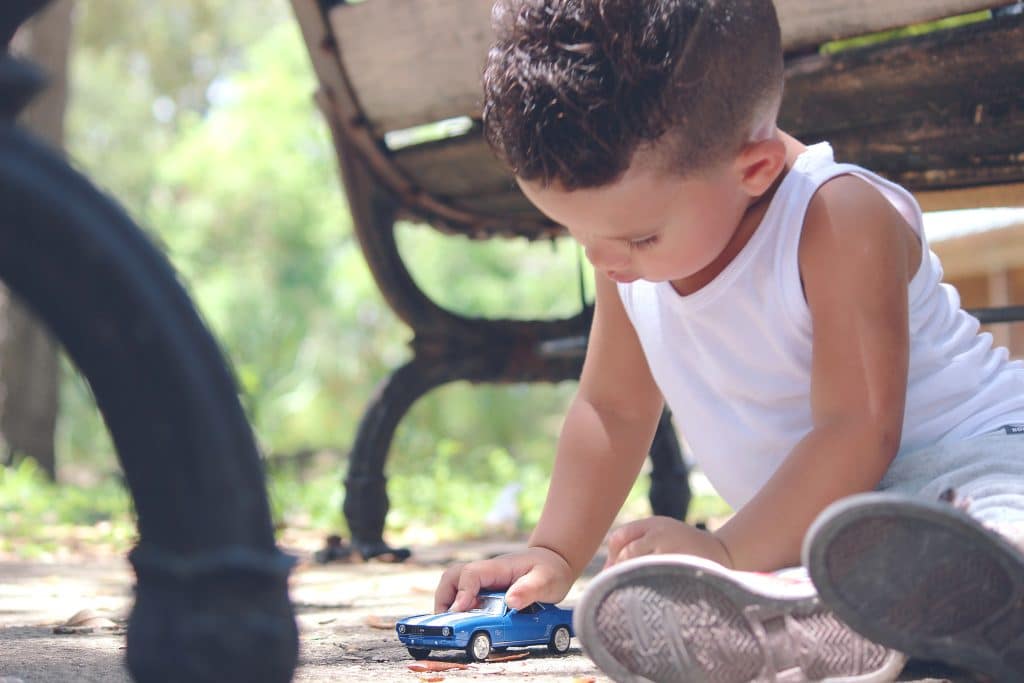Imagine this – you’re at the park, watching your child gleefully chase a butterfly, their laughter filling the air. Their joy is infectious, their spirit indomitable. Yet, there’s a nagging thought at the back of your mind — raising a child with mild intellectual disability. This journey, albeit rewarding, can be akin to navigating a labyrinth, with its fair share of twists and turns. This blog post is your trusty compass, offering guidance, insights, and strategies to help your child thrive. We’ll explore everything from understanding their unique needs to nurturing their potential. As a professional working closely with children, I’ll share practical tips and proven techniques to empower you. So, whether you’re seeking ways to enhance their learning or strategies to foster their social skills, you’re in the right place. Let’s embark on this journey together, transforming challenges into opportunities and fostering a nurturing environment for your child.
Table of Contents
Guiding Your Child Through Life’s Labyrinth
As you navigate the path of raising a child with mild intellectual disability, remember — you’re not alone. I’ve worked with countless parents and caregivers who’ve walked this path and seen firsthand the transformative power of guidance. It’s akin to holding a lantern in a dark forest, illuminating the way for your child.
For instance, breaking down tasks into smaller steps can make a world of difference. Visual aids can be your best ally here. Imagine teaching your child to tie their shoelaces. You could illustrate each step with simple drawings or use a toy shoe for practice. This approach not only simplifies the task but also makes learning a fun and engaging process.
Fostering Independence — A Step Towards Empowerment
Independence is not just about doing things alone; it’s about having the confidence to try. Encouraging your child to try new things and complete tasks alone can foster a sense of accomplishment. But remember, every child is unique, and so is their pace of learning. So, whether your child takes their first solo ride on a bicycle or manages to button their shirt, celebrate these milestones. They are a testament to your child’s growing independence.
However, fostering independence doesn’t mean leaving your child to fend for themselves. It’s about providing the right balance of freedom and support. For example, if your child is learning to make a sandwich, let them spread the jam while you handle the knife. This way, they’re participating in the task and learning while you ensure their safety.
Goally | The Tablet for Neurodiverse Kids

Teaching Self-Advocacy — The Power of Expression
Self-advocacy is a vital skill, not just for kids with special needs, but for everyone. It’s about understanding one’s needs and expressing them effectively. Teaching your child to say what they need, make smart decisions, and ask for help when necessary can be empowering.
For instance, role-playing can be a great way to teach self-advocacy. You could enact scenarios where your child needs to ask for help or express their feelings. Remember, practice makes perfect. The more your child practices these skills, the more adept they’ll become at self-advocacy.
Exposing Your Child to New Experiences
Exposing your child to new experiences and social circles can broaden their horizons. Group activities, scouts, recreation center activities, and sports can allow your child to interact with peers and learn new skills.
For example, a simple game of catch can teach your child about teamwork and cooperation. Meanwhile, participating in a painting class can foster creativity and fine motor skills. Remember, every new experience is a learning opportunity.
Positive Feedback — The Fuel for Growth
Positive feedback can act as a powerful motivator. When your child does something well or masters something new, acknowledge their effort. This can boost their self-esteem and encourage them to keep trying.
providing positive feedback is not just about praising the outcome. It’s about appreciating the effort. So, even if your child doesn’t win the race, applaud their determination to participate and finish. This can instill a ‘can-do’ attitude and resilience.
Learning About Intellectual Disabilities
Knowledge is power. The more you learn about intellectual disabilities, the better equipped you’ll be to support your child. Numerous resources are available online, including research articles, blogs, and forums where parents of kids with thinking and learning differences share their experiences.
Moreover, joining a support group can provide a sense of community. You can share your experiences, learn from others, and find solace that you’re not alone in this journey. Remember, every child is unique, and so is their journey. What works for one child may not work for another. Therefore, it’s crucial to keep learning and adapting your strategies to suit your child’s needs.

Read more: Executive Function Skills
Early Intervention — A Proactive Approach
Early intervention can be crucial to your child’s development. It involves identifying and addressing potential developmental issues at an early stage. This proactive approach can enhance your child’s skills and overall development.
Focus on your child’s strengths and provide appropriate support to help them overcome their challenges. For example, if your child has a musical knack, encourage this talent. Music can be a therapeutic outlet and enhance cognitive and motor skills. Remember, every child has a unique set of strengths. Identifying and nurturing these strengths can unlock your child’s potential.
Character Strengths of Kids with Intellectual Disabilities
Children with intellectual disabilities often possess many character strengths. For instance, their love of learning can be harnessed to explore new skills and concepts. Their honesty and fairness can make them great friends and team players.
their ability to appreciate beauty and excellence can give them a unique perspective on life. For example, they might find joy in the simple things others often overlook, like the rustling of leaves or the pattern of raindrops on a window. As a parent, recognizing and nurturing these strengths can help your child thrive. After all, every child is a star; they shine in their own unique way.
Goally | Apps To Support Child Development
Looking for fun ways to help your child learn life skills? Try Goally! The Goally tablet comes with award-winning learning apps and video classes to help kids develop the skills they need to become independent with FUN & evidence-based practices.

Our apps teach executive function, language, emotional regulation, finger dexterity skills, and more.
As your child develops new skills, you can increase the difficulty level of the tasks in the app to challenge and motivate them even further. This helps your child grow and progress at their own pace, while also keeping them engaged and excited about their development.

Turning Challenges into Opportunities
Remember, raising a child with mild intellectual disability is not just about overcoming challenges; it’s about celebrating victories, no matter how small. It’s about guiding your child through life’s labyrinth, fostering independence, teaching self-advocacy, and exposing them to new experiences. It’s about providing positive feedback, learning about intellectual disabilities, and focusing on early intervention. Most importantly, recognizing and nurturing your child’s unique strengths is important. So, as you continue on this journey, remember to celebrate each milestone, cherish each moment, and above all, believe in your child’s potential. After all, every child is a star; they shine brightest when loved, supported, and understood.
FAQ’s About Raising a Child With Mild Intellectual Disability
What is mild intellectual disability in children? Mild intellectual disability in children refers to a condition that affects their intellectual and adaptive functioning, causing them to develop and learn more slowly than other children. How can I support my child with mild intellectual disability? You can support your child by breaking down tasks into smaller steps, encouraging independence, teaching self-advocacy, exposing them to new experiences, and providing positive feedback. What role does early intervention play in managing mild intellectual disability? Early intervention plays a crucial role in enhancing your child's skills and improving their overall development by addressing potential developmental issues at an early stage. How can I teach my child with mild intellectual disability self-advocacy? You can teach self-advocacy through role-playing scenarios where your child needs to ask for help or express their feelings. What are some character strengths of children with mild intellectual disability? Children with mild intellectual disability often possess strengths such as a love of learning, honesty, fairness, and an appreciation of beauty and excellence.
This post was originally published on 04/11/2023. It was updated on 02/12/2024.

Goally
We help parents teach their kids life skills, like doing bedtime and morning independently. Backed by science, we incorporate evidence-based practices and expert-informed designs in all of our apps and content.





